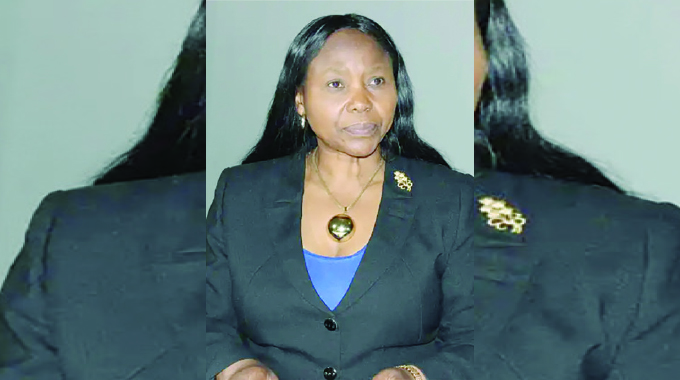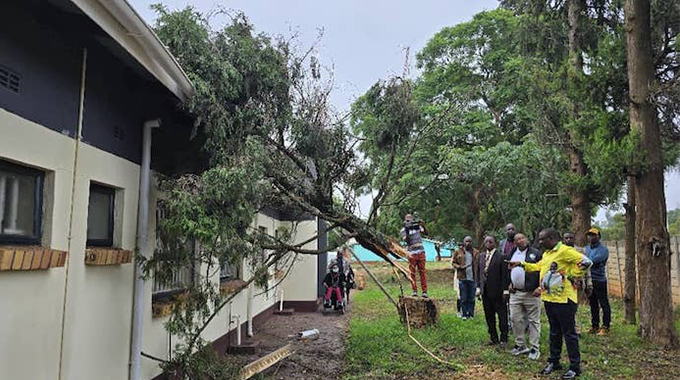Unity is peace, Zimbabwe commemorates National Unity Day

Sikhumbuzo Moyo, [email protected]
ZIMBABWE today commemorates the 36th anniversary of the Unity Accord with a call on citizens to embrace one another and continue to uphold the values of peace and reconciliation, which are key elements to attaining sustainable development.
The late former President Robert Mugabe and the late Vice-President Dr Joshua Mqabuko Nkomo led the signing of the historic peace deal on December 22, 1987, bringing to an end the political turmoil that engulfed the country in the early 1980s.
The Unity Accord is credited for ending Gukurahundi in Matabeleland and parts of the Midlands province and serves as a reminder to everyone that continuing to be committed to a process based on inclusion, integration and reconciliation is the only way to protect Zimbabwe’s sovereignty, independence, and territorial integrity.
In the build-up to today’s commemorations, Vice President Cde Kembo Mohadi, ministers and traditional leaders had rallied the nation to cherish the gains of the Unity Accord, which continues to distinguish Zimbabweans globally in terms of being able to resolve its internal problems without external interference.

Minister Oppah Muchinguri-Kashiri
In her National Unity Day message yesterday, Zanu-PF national chairperson and Defence Minister, Cde Oppah Muchinguri-Kashiri, said the peace deal doused the flames of disunity and armed conflicts which had afflicted the young nation, noting that 36 years later, Zimbabweans have proved their commitment to lasting peace and security.
“This historic occasion marked the start of a new path towards the creation of a prosperous, unified, stable, and democratic country,” said Cde Muchinguri as she commended every Zimbabwean for putting forth great effort to create a cohesive and peaceful country.
She described the prevailing unity in the country as the most precious of all the blessings bestowed upon the country, adding that along with prosperity, this has given the citizenry a sense of fortitude in the face of threats to independence and national security.
Quoting one of Africa’s great statesman, Kwame Nkrumah of Ghana who said; “The forces that unite us are intrinsic and greater than the superimposed influences that keep us apart”, Minister Muchinguri-Kashiri said Zimbabwean must not forget the vision for the country bestowed by the founding fathers.
“This is a picture of a united and prosperous nation where all people from all walks of life could live in peace and tranquillity,” she said.
“On this National Unity Day, we have the chance to remember the tremendous progress made by our visionary President, Dr Emmerson Dambudzo Mnangagwa towards promoting; unity, peace, and development as well as to affirm the innate strength of our country.”
The minister said since 1987, Zimbabwe has emerged as a symbol of enduring peace and stability as a consequence of the Unity Accord.
She said under the wise leadership of President Mnangagwa, the Zanu-PF-led Government has ensured that no one and no community is left behind hence buttressing the key tenets of the peace deal.
“Coming together is a must. As a people, we are one. Zimbabwe is our birthplace. We have to be watchful and zealously guard our national unity.
“Any cracks or resentful memories from the past are always ready to be exploited by our enemies and their proxies,” said Cde Muchinguri-Kashiri.
“As a cohesive people, we must remain strong and unwavering. According to the adage, ‘divided we fall, united we stand’.”
Commenting on the significance of unity, Chief Gampu of Tsholotsho said while appending of signatures on the Unity Accord document brought an end to the conflict, its societal and developmental effects are now being physically felt under the Second Republic.
“The Unity Accord brought peace and harmony to the nation but when you look at it, people were still in fear whenever the issue of Gukurahundi was mentioned yet that was the major carnage that led to the late leaders — Dr Joshua Nkomo and Cde Robert Mugabe to smoke the peace pipe,” he said.
“That fear is no longer there ever since the Second Republic took over, people are now free to confront the dark past, even you people in the media are now writing about these things. This is the start of the real healing process, it delayed but it has started,” said Chief Gampu.
He said the healing process is not an overnight thing but a process that is already in motion.
“God himself forgave us, He even sent His only son to be crucified, let us also forgive each other as a people. The National Unity Day is a time for us to reflect along the lines of forgiveness so that we may prosper as a nation,” said Chief Gampu.
As reported by the Chronicle of December 23, 1987, among the key points that led the two warring parties to agree to unite was the realisation of historical links between both parties in the struggle for national independence and democracy through the strategy of the armed struggle and their alliance under the banner of Patriotic Front.
Both parties jointly commanded the support of the overwhelming majority of the people of Zimbabwe as shown by the results of the 1980 and 1985 general elections. While Zanu commanded a greater percentage of the majority of the people of Zimbabwe, there was overwhelming desire to unite the nation, establish peace, law and order and guarantee social and economic development and political stability.
Both parties wanted to eliminate and to end the insecurity and violence caused by dissidents in Matabeleland and they were convinced that national unity, political stability, peace, law and order, social and economic development could only be achieved to their fullest under conditions of peace and then unity primarily or both of them.












Comments